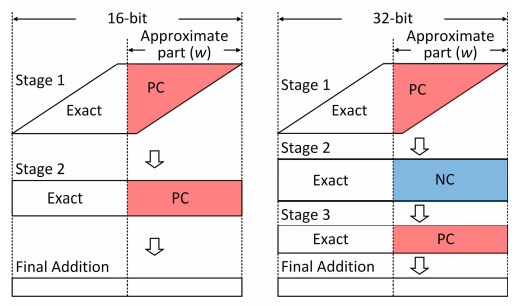Design and Analysis of Approximate Compressors for Balanced Error Accumulation in MAC Operator
Also Available Domains Arithmetic Core|Xilinx ISE
Project Code :TVPGTO594
Abstract
In this project we are going to design
approximate MAC architecture which involves multipliers and adders. In the
conventional multipliers and adders there are many techniques to design where
accurate multiplier is the most power consuming among all arithmetic functional
unit. In this proposed implementation we are going to suggest a novel
approximate structure which leads to reduction of power consumption compared to
the conventional accurate array multiplier. There re conventional approximate
compressors for the designing of approximate multipliers but they limit the
error and the Accuracy obtained is less and UN balanced. Here unbalanced error
signifies the error distance either to b positive or negative which will effect
the accuracy metrics of the compressor there by it will influence the
multiplier accuracy. So to get a balanced error accumulation to obtain a high
accuracy efficiency compared to the conventional approximate multiplier designs
in this suggested or proposed implementation we are going to consider a
positive approximate compressor and a negative approximate compressor
which is obtained by the modification of Boolean expression a of the existing approximate
compressors. For the balanced error accumulation, we first design the
approximate 4-2 compressors generating errors in the opposite direction while
minimizing the computational costs.
NOTE: Without the concern of our team, please don't submit to the college. This Abstract varies based on student requirements.
Block Diagram

Specifications
Software Requirements:
- Xilinx Vivado Tool
- HDL: Verilog
Hardware Requirements:
- Microsoft® Windows XP
- Intel® Pentium® 4 processor or Pentium 4 equivalent with SSE support
- 512 MB RAM
- 100 MB of available disk space
Learning Outcomes
- Basics of Digital Electronics
- VLSI design Flow
- Introduction to Verilog Coding
- Different modeling styles in Verilog
- Data Flow modeling
- Structural modeling
- Behavioral modeling
- Mixed level modeling
- Introduction to Arithmetic circuits
- Knowledge on MAC circuits
- Different multipliers and compressors
- Knowledge on compressors and inexact computation
- Applications in real time
- Xilinx Vivado for design and simulation
- Generation of Netlist
- Solution providing for real time problems
- Project Development Skills:
- Problem Analysis Skills
- Problem Solving Skills
- Logical Skills
- Designing Skills
- Testing Skills
- Debugging Skills
- Presentation Skills
- Thesis Writing Skills
Demo Video
Related Topics


 Paper Publishing
Paper Publishing
